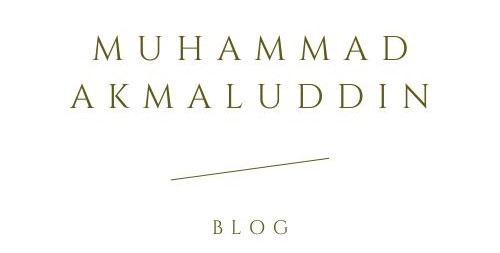Spanish mezquita ‘mosque’ supposedly comes from Andalusian Arabic ‘masgid’, but why does it end in /a/? And why does it lack the article ‘al-‘ that characterizes Arabic loans in Spanish? Here is an interesting story involving the Aramaic of the Nabataeans!
We find a similar word, with the same unexplained final /a/, in #Berber, where mosque is <taməzgida>. The initial ta- is part of Berber grammar, which suggests that the original form of the word was mezgida, with no definite article and a final /a/.
This suggests that when Spanish and Berber borrowed this word, it was not pronounced al-masjid, but rather masgida, with a final vowel – definitely not the Classical Arabic form. When and from whom did they acquire this word?
This pronunciation seems to have been ancient. The Greek rendition of the word mosque in papyri from Egypt dating to the first Islamic century (7th -early 8th c. CE) is μασγιδα /masgida/, pointing to the same form! (see bibliography for references)
Masjid is not an originally Arabic word, but traces its roots, like so many other religious terms, to Aramaic. The masjid, literally ‘place of prostration’, originally referred to an altar.
The text states in Nabataean Aramaic: masgedā di ʿbad māseko bar ʿawīḏā le-dū-śarē ‘The altar which Māseko son of ʿawīḏā constructed for Dusares (Nabataean god)’
There is also a Greek component: Μασεχος Αουειδανου Δουσαρει Ααρρα
Such altars were set up in sanctuaries and, it seems, came to refer to the sanctuary itself. You probably have noticed that the Aramaic term also terminates in a final a, spelled in Nabataean as msgdʾ /masgidā/, agreeing with the Spanish, Berber, and Greek forms.
But in this case, the final /a/ is not anomalous – it is the definite article, equivalent to Arabic al-! Definite nouns in Aramaic terminate in a final ā, so masgid-ā is ‘the altar’. How does the Nabataean form help us explain Mezquita?
1) it gives an answer to where the final /a/ comes from. 2) it explains why it does not have the definite article al-: the noun is already definite by virtue of the final /a/!
But this explanation implies that the original Aramaic form continued to be used colloquially among the Arab conquerors. Entirely possible! Aramaic-Arabic bilingualism was widespread and cultural/religious terms are great candidates for the use of Aramaic in an Arabic context.
If this account is correct, then it is not entirely accurate to consider mezgida a loanword from Arabic, as this is not the Arabicized form, but rather from Aramaic!
a/ Other details: The pronunciation of the Jīm (as in James) as [g] (as in Garden) in masgeda is in fact original in Arabic and Semitic (and preserved BTW in Egyptian Arabic!). It additionally suggests a non-Classical Arabic source for the word.
b/ Bibliography:
Read more about Masgida and the Arabic of the Islamic conquests here:
https://t.co/6j7j8smzq0
Littmann 1913:
https://t.co/GH47oHRp7L
Sources from here.
We find a similar word, with the same unexplained final /a/, in #Berber, where mosque is <taməzgida>. The initial ta- is part of Berber grammar, which suggests that the original form of the word was mezgida, with no definite article and a final /a/.
This suggests that when Spanish and Berber borrowed this word, it was not pronounced al-masjid, but rather masgida, with a final vowel – definitely not the Classical Arabic form. When and from whom did they acquire this word?
This pronunciation seems to have been ancient. The Greek rendition of the word mosque in papyri from Egypt dating to the first Islamic century (7th -early 8th c. CE) is μασγιδα /masgida/, pointing to the same form! (see bibliography for references)
Masjid is not an originally Arabic word, but traces its roots, like so many other religious terms, to Aramaic. The masjid, literally ‘place of prostration’, originally referred to an altar.
The text states in Nabataean Aramaic: masgedā di ʿbad māseko bar ʿawīḏā le-dū-śarē ‘The altar which Māseko son of ʿawīḏā constructed for Dusares (Nabataean god)’
There is also a Greek component: Μασεχος Αουειδανου Δουσαρει Ααρρα
Such altars were set up in sanctuaries and, it seems, came to refer to the sanctuary itself. You probably have noticed that the Aramaic term also terminates in a final a, spelled in Nabataean as msgdʾ /masgidā/, agreeing with the Spanish, Berber, and Greek forms.
But in this case, the final /a/ is not anomalous – it is the definite article, equivalent to Arabic al-! Definite nouns in Aramaic terminate in a final ā, so masgid-ā is ‘the altar’. How does the Nabataean form help us explain Mezquita?
1) it gives an answer to where the final /a/ comes from. 2) it explains why it does not have the definite article al-: the noun is already definite by virtue of the final /a/!
But this explanation implies that the original Aramaic form continued to be used colloquially among the Arab conquerors. Entirely possible! Aramaic-Arabic bilingualism was widespread and cultural/religious terms are great candidates for the use of Aramaic in an Arabic context.
If this account is correct, then it is not entirely accurate to consider mezgida a loanword from Arabic, as this is not the Arabicized form, but rather from Aramaic!
a/ Other details: The pronunciation of the Jīm (as in James) as [g] (as in Garden) in masgeda is in fact original in Arabic and Semitic (and preserved BTW in Egyptian Arabic!). It additionally suggests a non-Classical Arabic source for the word.
b/ Bibliography:
Read more about Masgida and the Arabic of the Islamic conquests here:
https://t.co/6j7j8smzq0
Littmann 1913:
https://t.co/GH47oHRp7L
Sources from here.








Social Plugin